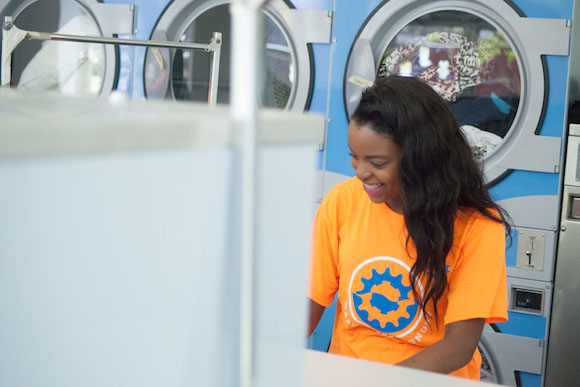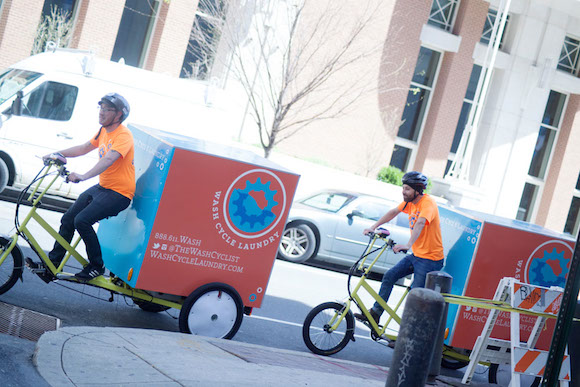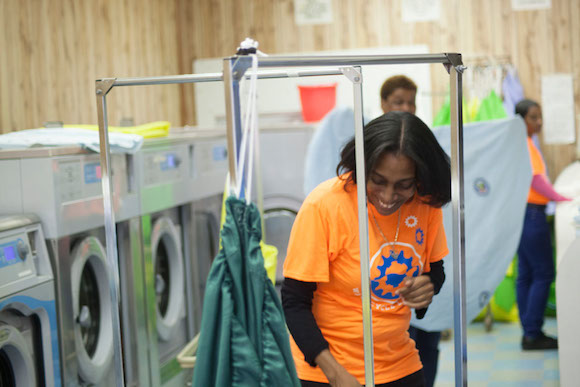At first glance, prospects for job-seekers in the Philadelphia region appear to be improving. From 2010 to 2013, unemployment rates remained stubbornly high — over 10 percent — but that changed this year. March estimates put the unemployment rate at 8 percent, the lowest since 2008. But beneath these numbers is a hidden cause for concern.
Far too many Philadelphians have simply given up.
The unemployment rate only reflects the percentage of people who are actively looking for a job, but haven’t found one. If a discouraged worker abandons the search, she or he is no longer counted in the unemployment rate. Every time this happens, the labor force participation rate shrinks.
In Greater Philadelphia, this is a pressing problem. The city has one of the lowest labor force participation rates of any major metropolitan area in the United States, and there are reasons to believe this isn’t just a recession-based problem. A combination of technological advances and a globalized labor market have drastically reduced the demand for low-skill jobs. These days, in order to find a well-paying job in Philadelphia, a worker often needs a college education or a specialized set of skills.
Augmenting that problem, Philadelphia ranks 91st among the 100 largest U.S. cities when it comes to the percentage of the population with at least some college education. Historically, just one in ten local students who enter high school go on to receive a two- or four-year college degree. Businesses are hiring again, but many Philadelphia workers are woefully underprepared to compete for those jobs. In the event that they had gained specific knowledge, such as searching tailored jobs based on their educational background, seeking resume writing services, creating networks, or applying to jobs that needed experience, they might have been immediately noticed by reputable recruiters. Standing out from the crowd has become more than a necessity in these evolving times.
Nevertheless, the task of helping these discouraged, underskilled job seekers is a challenging one, but people like Brent Ford are undaunted.
Training a new generation of employees
Ford is the Human Resources Manager at PTR Baler and Compactor, a Port Richmond-based manufacturer for high-volume recycling and waste removal needs. Founded in 1907, PTR has been hiring Philadelphia welders, engineers, technicians and other skilled workers for over a century. Recently, that has become more difficult. Young workers with specialized vocational training are hard to find.
“More and more of a gap is being created,” says Ford, “with students graduating from high school and either entering the workforce immediately or being pushed towards college.”
Those who enter the workforce directly tend to be unskilled, winding up in low-wage industries with little upward mobility. Philadelphia high school graduates who go on to college also don’t fare that well — only half of those who enroll directly in college go on to earn a degree within six years.
These factors lead to a large pool of underskilled workers and a smaller group of college graduates looking for work in professional industries. Neither is a good fit for the well-paid union jobs at PTR.
So the company took it upon themselves to address the problem.
“Rather than just sitting back and stating there is a skills gap, we wanted to get involved,” explains Ford.
PTR adopted a three-pronged approach to hiring. First, they started advocating for vocational training and technical certification as an option for high school graduates alongside a traditional college education. In partnership with organizations like Philadelphia Works, the Job Opportunity Investment Network (JOIN) and the Southeast Regional Workforce Development Partnership, they are working to build awareness of and support for vocational training.
Second, PTR invests directly in local high schools. Since last summer, Thomas Alva Edison High School has been home to the PTR Technology Center, where students get hands-on experience in welding and other manufacturing skills. PTR also hosts a student co-op program that enables seniors from Edison and Mercy Vocational High School to practice their trade in a work setting and receive a paycheck. PTR benefits from the co-op program, too. According to Ford, at least three quarters of co-op students stay with the company after graduating.
Finally, PTR started training their own employees. Ford and his team identify talented workers and commit to training them in the skills they need. In the last year, 26 new hires have undergone training. The process lasts for 12 to 18 months and costs between $4,000 and $10,000 per individual, but it pays off in the end. Nearly every worker that has completed the training program is still working for PTR today.
For Ford and PTR, this approach has been a huge boon at a time when the company needed it. Without young, qualified workers, PTR would be hard-pressed to maintain their operations. PTR is not alone in this regard. Skilled-industries ranging from welding to carpentry to electricity are all facing similar challenges.
“The average age of a welder in the United States is 50 years old,” says Ford. “That is going to create a huge gap in the next 10, 15, 20 years.”
Bicycles, Laundry and Social Change
Other companies are taking up the call to hire locally and thoughtfully. Wash Cycle Laundry is a laundry delivery business founded in 2010 — they pick up laundry around the city, wash and dry-clean it, and return it the next day. And they do it all using bicycles-powered trailers.
Over half of the workforce at Wash Cycle comes from vulnerable populations that face barriers to employment, such as long-term unemployment, a criminal record, or dependence on social services for basic needs such as shelter and food. For Gabriel Mandujano, the founder and CEO, hiring from within these populations was an essential social mission for the company.
“To move the needle on issues like this you need to change federal or state policy — or you need to be the employer,” he asserts.
Mandujano opted for the latter. Since 2010, when Wash Cycle Laundry launched with one bike and one trailer to carry laundry, the company has grown to employ over 30 in four facilities in two cities. A fifth location is due to come online in June.
The rapid growth and the decentralized production model has provided ample upward mobility for Wash Cycle employees. For Mandujano and the team at Wash Cycle, simply hiring employees from vulnerable populations isn’t enough.
“Hiring internally and providing opportunities for advancement is core to what we do,” explains Mandujano.
Three out of the four team leaders at Wash Cycle were hired from a vulnerable population and two-thirds of the people who report directly to the CEO started out as cyclists picking up and delivering laundry. This commitment to creating advancement opportunities seems to be paying off. According to Mandujano the average employee retention rate for their industry is 46 percent. Wash Cycle’s is nearly double that.
A collaborative effort
Of course Ford and Mandujano aren’t doing this alone.
“The biggest challenge is getting the cooperation of government, schools, employers and philanthropists, and bringing them together to get this done,” says Ford.
That is where organizations like Philadelphia Works, JOIN and Gearing Up come in. For both PTR and Wash Cycle, these organizations have been essential resources.
“They help us find job candidates, they help us place them, and they help with services like childcare provision and reliable transportation,” explains Mandujano.
They also can help provide scale. The gap between the needs of employers and the skills of the workforce is a city-wide challenge. To reverse the downward trend in workforce participation and make more well-paying jobs available to Philadelphians, more companies will need to follow in the footsteps of PTR and Wash Cycle.
Non-profit partners are a resource where expertise can grow, successful strategies can be replicated, and support networks for both employers and employees can form. PTR, Wash Cycle Laundry, and other companies have demonstrated that success is possible on a small scale — now the challenge is to see whether success can be achieved on a grand scale.
BRANDON ALCORN is the project manager for Global Initiatives at the University of Pennsylvania and a freelance writer whose work has recently appeared in Nature,The New Republic and Slate. Follow him on Twitter at @b_alcorn.





